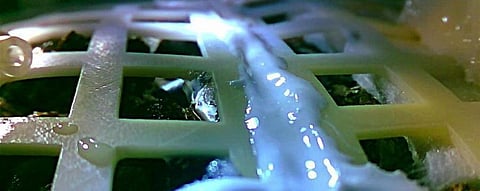‘Humans are closer to setting up base on Moon’
China’s Chang’e-4 lander successfully grew a plant on the Moon, but it died soon after. Within three hours of announcing the successful sprouting of the cotton plant, Xinhua news agency also announced that the Chinese experiment is now over as the different species will not be able to survive the long lunar night which started on January 13 and will last for two Earth weeks.
Here, Down To Earth talks to Pushkar Ganesh Vaidya, head of Indian Astrobiology Research Centre in Mumbai, on the first seed sprouting on the Moon and its significance.
What is the astro-biological significance of the first seed sprouting on the Moon and how unlikely was this outcome?
Not unlikely at all because, in the past, various plants have been grown in low gravity and controlled environments on the International Space Station and in some other missions. However, this one is a first to grow a plant in a controlled environment on the Moon. The significance of course is that we now have positive confirmation that we can grow food in controlled environments on the Moon. We are now one step closer to setting up a base there
Since the organisms are decaying inside the probe is there any chance of them contaminating the lunar surface?
The biomaterial is placed inside sealed canisters and hence there is no question of anything escaping into the open and on to the Moon. However, I personally find this whole idea of treating ‘life as a contaminant’ tad ridiculous.
What will be the consequences of such a contamination?
Well, the consequence will be none. Moon and Earth have been around for about four and half billion years and microbial life has existed on Earth for about four billion years. Over this long period, Moon (and Mars) has sent tonnes of material flying to the Earth and it is highly likely that the Earth has returned the favor. This is known as transpermia, exchange of biomaterial between planetary bodies on our solar system through pieces of rocks flung at each other owing to impacts.
What kinds of plants are generally suited to survive in space?
Almost anything can be grown there because we are speaking of controlled environments and hence perhaps the only limiting factors are the abiotic factors like water, light etc.
What kind of experiments is India conducting on this subject?
None and this is because India is yet to send a spacecraft which can do such experiments on the lunar surface or in space.

